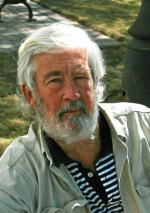
Curtis Wilkie
My friend and former Boston Phoenix colleague David Bernstein has written a terrific piece on the media horde that follows the presidential candidates from stop to stop. Bernstein discovers that the number of reporters on the campaign trail may be as great as it ever was, but that the composition and focus have changed considerably.
Unlike campaigns past, Bernstein writes, local newspapers are barely represented. The New York Times and the Washington Post are on the case, of course. But even the Boston Globe, which has made a significant effort to cover the 2012 race, can’t match what it did in 1988, when it actually established a bureau in Des Moines the year that Michael Dukakis won the Democratic nomination.
So who’s taken their place? Niche organizations devoted to covering politics such as the Huffington Post, Politico, Talking Points Memo, Slate, Salon, Real Clear Politics and the cable news operations. Bernstein argues that the result is coverage that is more insular and insidery than ever, as news aimed at a general audience has been replaced with news for political junkies.
I’m not sure I agree. Yes, the state of political journalism today can be dreadful at times, but it was pretty bad back in the day, too. Inside baseball has always been the stock in trade. Bernstein pays homage to Timothy Crouse’s classic treatment of the 1972 campaign-trail press corps, “The Boys on the Bus.” One of Crouse’s key observations was that few people on that bus dared go off the reservation and report stories no one else was reporting for fear that their editors squawk.
One of the most fun stories I reported during my own years at the Phoenix was the 2000 South Carolina Republican primary campaign, when George W. Bush annihilated John McCain. For two days I rode in the McCain caravan, and then spent two more days driving to Bush events. So I enjoyed Bernstein’s interview with the legendary political reporter Curtis Wilkie, a star of “The Boys on the Bus.” I got to talk with Wilkie on the trail 12 years ago, when he was still working for the Globe. Wilkie has since moved on to the University of Mississippi.
“For the broader audience in the middle of the country, the idea that your local paper does not have a presence there, it’s sad,” Wilkie tells Bernstein.
The problems of political coverage are the same as they ever were: an obsession with the horse race to the near-exclusion of ideas; a pack mentality that makes it difficult for anyone to report stories that are truly different; and an orientation toward inside stories about strategy rather than about how candidates might actually govern.
Bernstein has given us a close-up look at how the good, the bad and the ugly of political journalism has made the transition to the technological, post-newspaper age.
Photo © 2011 by the University of Mississippi.

